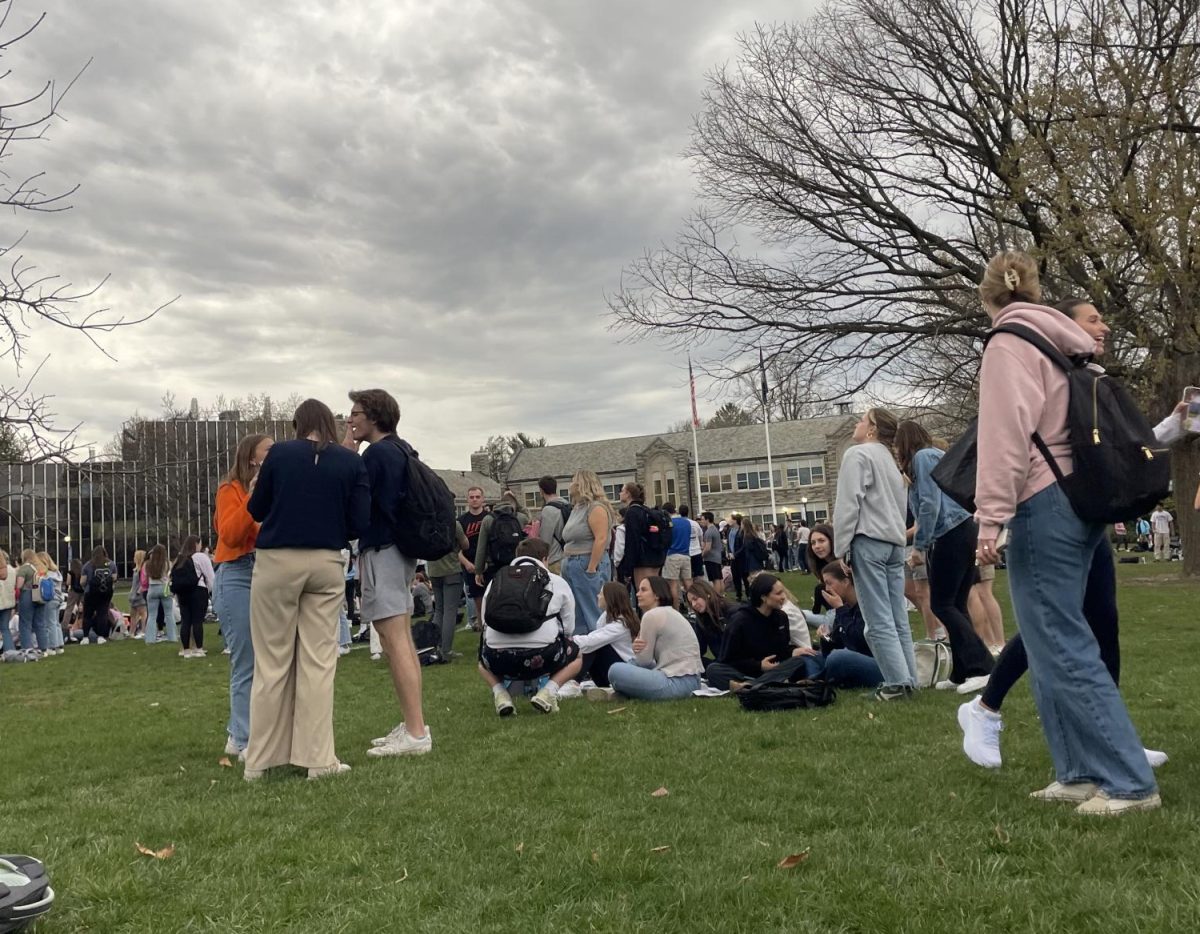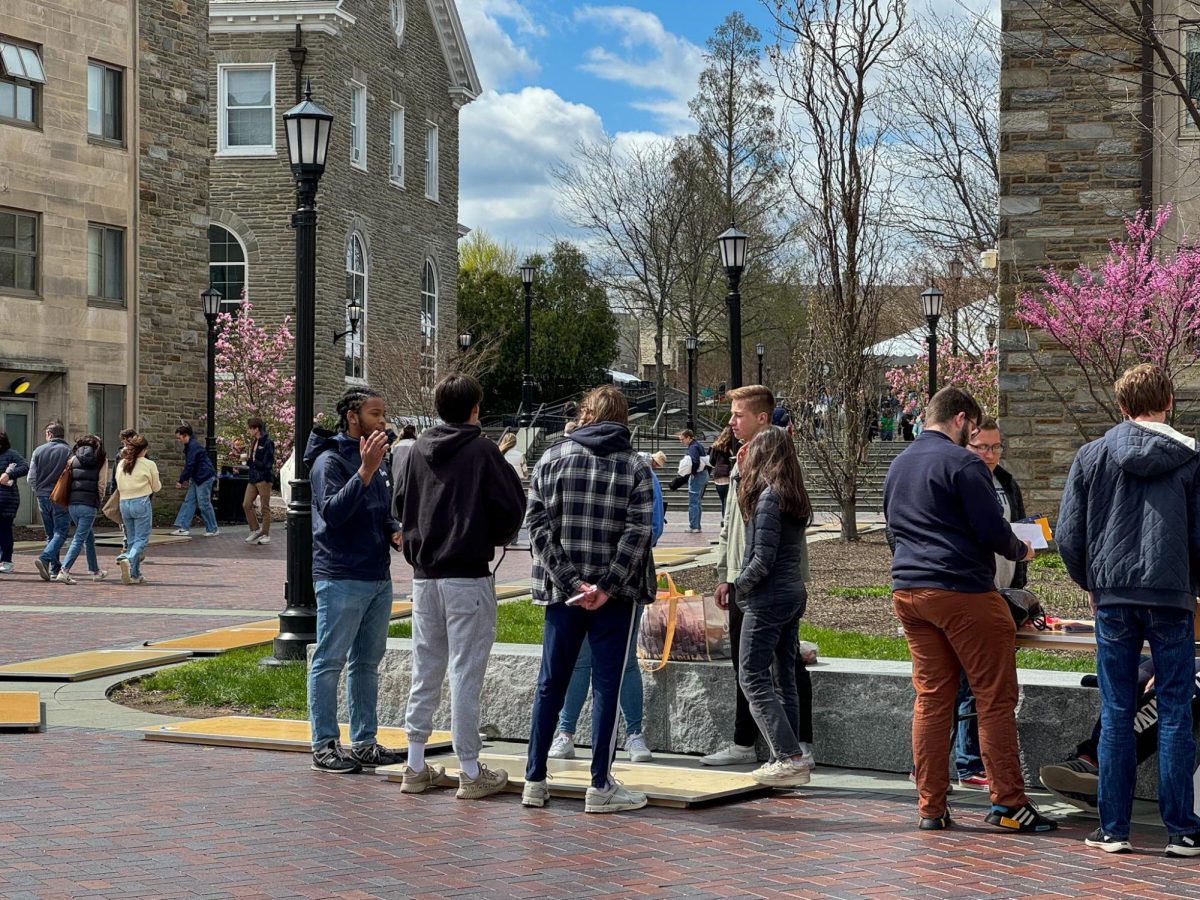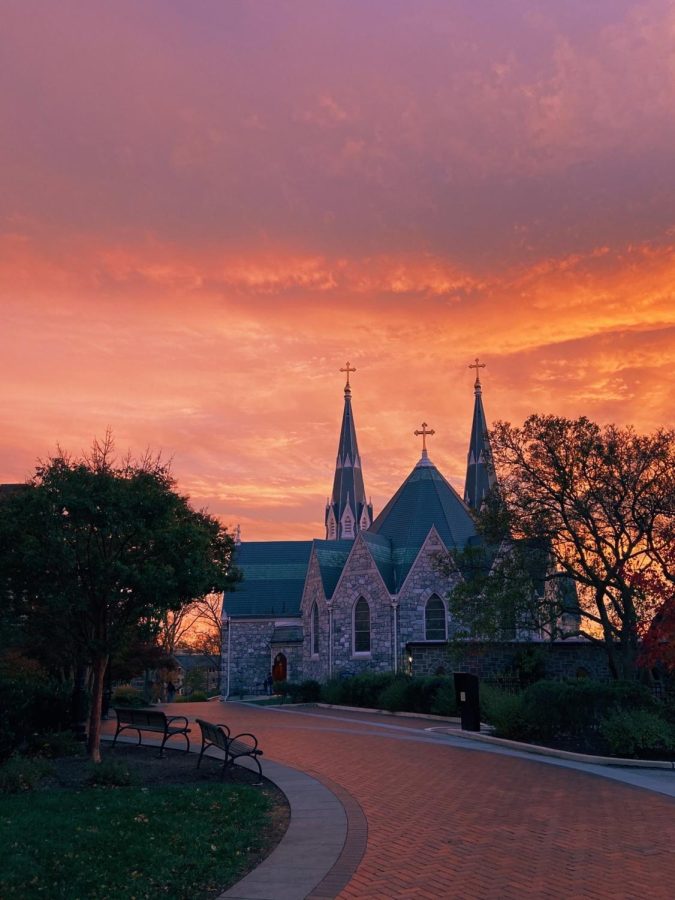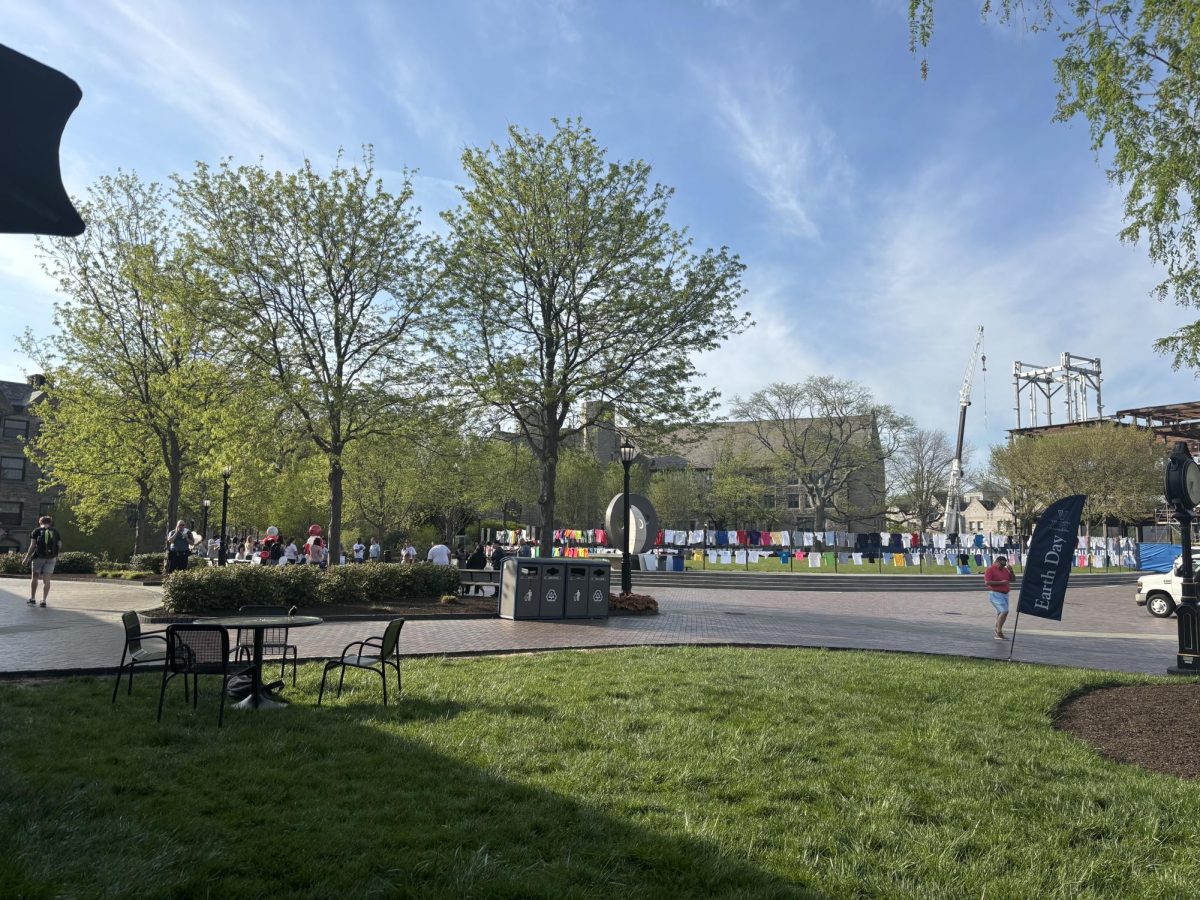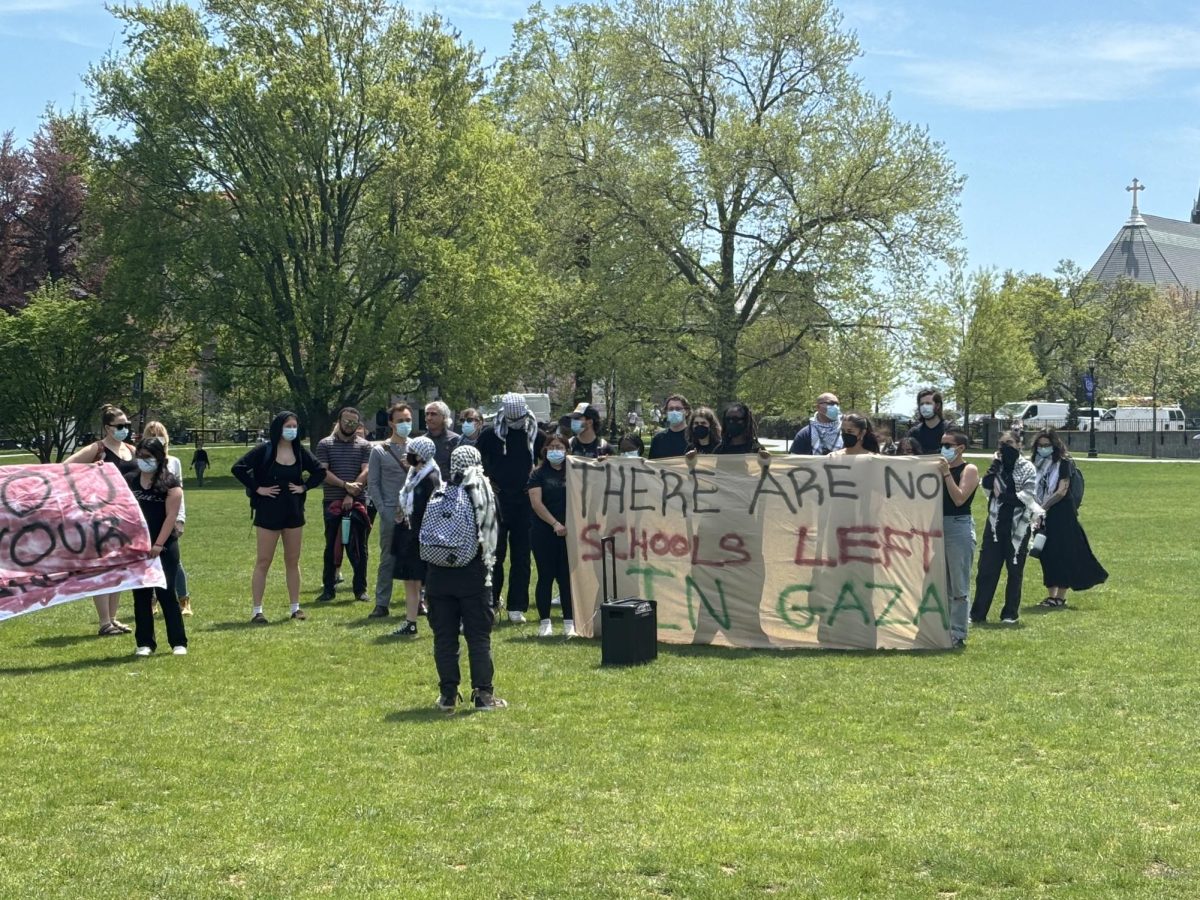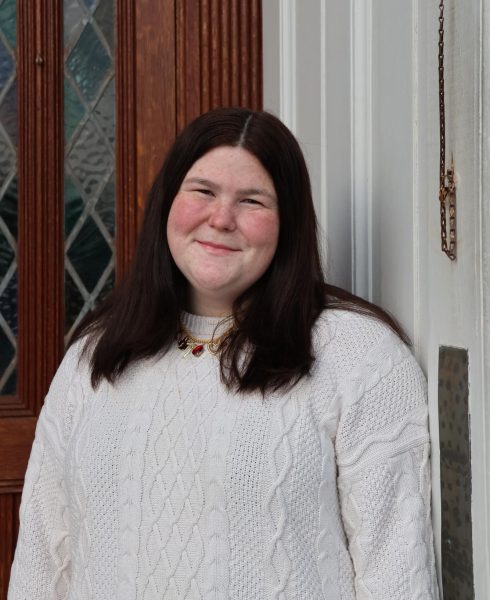April 8, 2024 marked the latest total solar eclipse. Total eclipses are rare, and there is not one set to be seen again for approximately another 30 years.
“The solar eclipse is always very exciting,” junior astrophysics major Alexa Kallas said. “The last visible one was in 2017, so it is thrilling that there was another this week. Being able to tie in this real world experience to my classes here at Villanova is also very exciting, and helps us as astrophysics majors truly see what we are learning about in the real world.”
Students and staff celebrated the occasion in a variety of ways. The Astrophysics and Planetary Department hosted a viewing event. The department filled Mendel Field with students and professors watching with their glasses. The Mendel Observatory was also open, in order to allow individuals the opportunity to view from that telescope, as well.
“I had the chance to go up to the Observatory and watch the eclipse,” sophomore Nadia Balduf said. “It was a very unique experience, and I am grateful the University allowed us the opportunity to go up there and watch.”
Other students enjoyed simply standing and observing the rare scientific event on Mendel Field with their fellow Villanova students.
“At first, I was a little bit disappointed due to the weather and clouds,” sophomore Zach Hetrick said. “However, once the sun started to come out from behind, it was a super special experience. Everyone being together on Mendel Field fostered such a sense of community, and I’m glad we were able to see the eclipse happen.”
Many professors canceled or altered their class times in order to allow students to watch the eclipse. Professor Stephen Strader, a professor in the Department of Geography and the Environment, is one of these teachers. Strader, who teaches an introduction to climate change course, touched on the importance of viewing the eclipse.
“Ultimately, when all of this is gone, my students will not remember what I lectured on on April 8, 2024, but they will remember the eclipse,” Strader said. “Sometimes, we are affected by things like this, and we should take a timeout and experience them. Hopefully the students will appreciate it, because it is cool.”
Select students also decided to view the eclipse from off campus, including sophomore physics major Ryan Levey, who traveled to upstate New York to view the event.
“I decided to go out of state to view the eclipse,” Levey said. “As a physics major, I felt as though this was a once in a lifetime event I simply couldn’t miss, especially since it was happening so close to where I am from at home. It ultimately gave me the opportunity to tie the world of physics into the world of astronomy.”
There is not another eclipse predicted to occur before 2033, at the earliest, and it is unclear when the next total eclipse will take place.
“In general, we are in a time where getting interest from students and getting them to think about science is important,” Strader said. “We are able to see this strange phenomenon and we will be talking about how it affects weather and such in class, but it is also just worth telling people about the cool things we can see. We can gain a lot when we put down our phones and other distractions and just look around the real world.”

